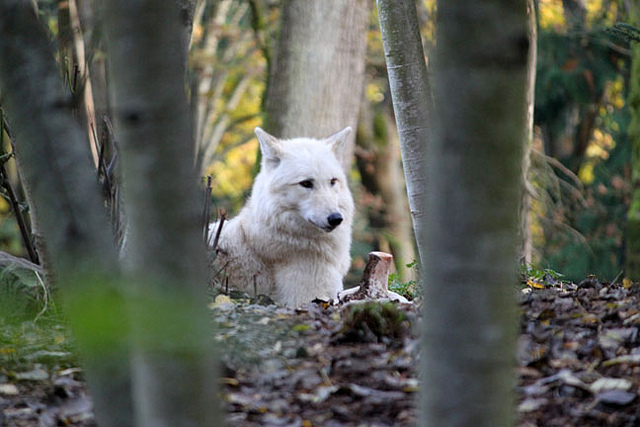A Household White Wolf – Idioms In French Posted by John Bauer on Nov 1, 2017 in Culture, Vocabulary
When I learned Joe Dassin is a household name, I wanted to use an equivalent French expression in the article. What I found surprised me with how imaginative it is to English speakers: to be known like the white wolf.
Les expressions (the expressions) we use every day can be hard to translate because of how the idea has nothing or very little to do with the literal meaning of la phrase (the sentence). If you try to translate mot à mot (word for word) you’re destined to fall into the trap of thinking in English.
If you said to a French person:
Il pleut des chats et des chiens.
It’s raining cats and dogs.
They will never understand that you mean:
Il pleut des cordes.
It’s raining ropes.
Of course now neither le francophone (a French speaker) nor l’anglophone (an English speaker) realizes that both just want to say:
Il pleut beaucoup.
It’s raining a lot.
So when I saw that one way to say a household name is:
Être connu comme le loup blanc.
To be known like the white wolf.
I knew a literal translation would not make any sense to un anglophone.
Alors d’où vient l’expression ?
So where does the expression come from?
L’expression can be seen in literature as early as le 13e siècle (the 13th century), but all throughout le Moyen Age (the Middle Ages) le loup (the wolf) was a seen as scary animal that was often used in fairy tales and other folk stories as a monster. Even today almost everyone grows up with the story of Le Chaperon Rouge (Little Red Riding Hood).
It’s not hard to see how whenever un loup was near le village during a time when everyone saw l’animal as a monster that the news spread quickly to everyone in town. That is indeed where it’s thought l’expression comes from!
Interestingly, it wasn’t specified to be un loup blanc (a white wolf) until le 19e siècle. Until then it was common to see a similar variant: être connu comme le loup (to be known like the wolf). Cependant (however), it’s easy to see how an all white wolf might be an even more surprising sight to un petit village.
No matter the case, the funny way l’expression sounds to un anglophone makes it very easy to remember and gives you something fun and new to add to votre vocabulaire:
Être connu comme le loup blanc.
A household name.

Build vocabulary, practice pronunciation, and more with Transparent Language Online. Available anytime, anywhere, on any device.




